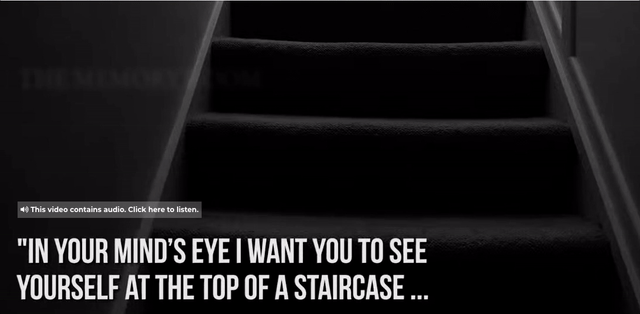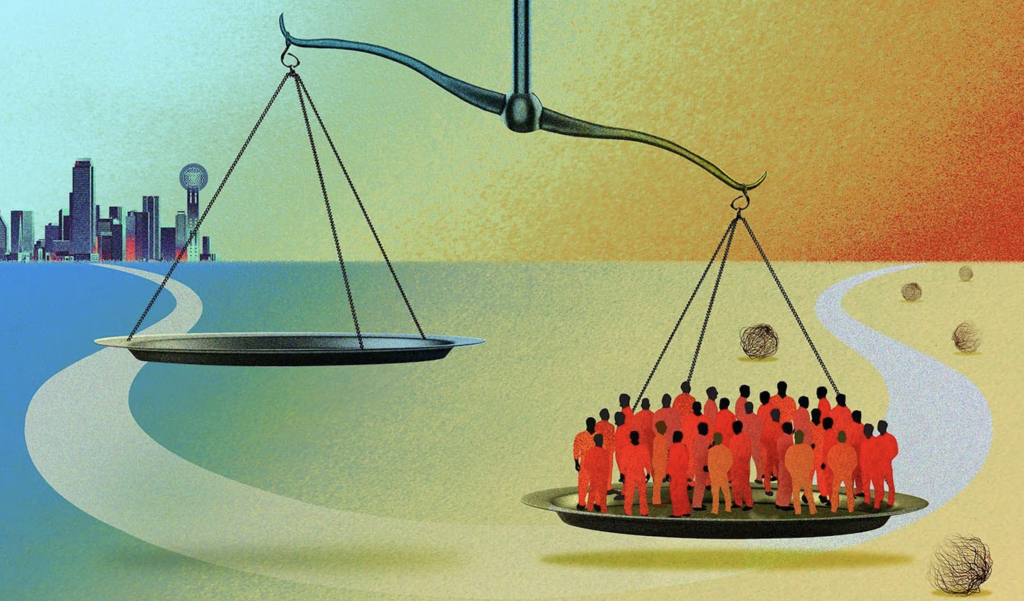‘The Memory Room:’ an award-winning investigative series
[Published April 2020]

Investigative reporter Dave Boucher and I spent more than a year investigating and writing this two-part series on how Texas police use hypnosis to investigate crimes. For 40 years, law enforcement here have turned to the controversial and scientifically debunked method to send dozens of people to prison — and some to their deaths.
Through records requests, court cases and interviews with current and former police hypnotists, we found hundreds of officers in Texas received hypnosis certifications over the decades. They’ve used hypnosis to investigate thousands of crimes, including several where men were convicted to life and death sentences.
We also investigated one case dating back to 1988 in Dallas, where the police department employed a detective who was lauded for creating his own hypnosis “sub-unit.” Dallas police botched an investigation into who an assault, so it turned to this detective — and to hypnosis. Danny Ray King, a Black police trainee with no criminal history, was eventually convicted and sentenced to 60 years in prison based solely on hypnotically-refreshed testimony. After The News began asking questions about his case, King was approved for parole and released from prison. He now plans to argue his innocence.
The Texas Rangers, the most prolific police hypnotists in the state, shuttered their 40-year-old hypnosis program after our investigation published. In 2021, lawmakers unanimously passed a bill banning hypnotically-refreshed testimony.
Gov. Greg Abbott vetoed the bill.
In 2023, lawmakers again passed the legislation gutting the practice of police hypnosis. It was signed into law and went into effect on Sept. 1, 2023.
The story won the 2020 Headliners Foundation Silver Showcase Award for Enterprise and Innovation.
Prison Gerrymandering Investigation: How prison inmates help Republicans maintain power [Published December 2019]

Texas counts incarcerated people in their prison cells for the purposes of redistricting and drawing new voting maps, which inflates the political power of largely white, GOP districts and drains population from Democratic strongholds.
This analysis and narrative story involved comparing state prison and Census data to voting trends and newly-proposed electoral maps in Texas. Ari Sen performed much of the data work.
The story was the runner-up for best single story in the 2023 Harry Frank Guggenheim Prizes for Excellence in Criminal Justice Reporting @ John Jay College.
An inmate’s body temp was 107.5 when he died. The state of Texas says heat did not kill him.
[Published July 2024]
The state denies any heat deaths in Texas prisons in more than a decade. But using autopsies obtained through public records requests, this story showed extreme heat likely contributed to the deaths of multiple inmates just last summer.
Government Accountability Stories
AG Ken Paxton has bought several properties worth millions. He’s yet to publicly disclose them.
[Published December 2093]
This story revealed the Texas Attorney General had not disclosed to state ethics regulators more than millions of dollars worth of properties across a half dozen states. Continued coverage of this issue has prompted questions about the lackluster state ethics laws.
Ken Paxton Impeachment Coverage
[Published throughout 2023]
The capital bureau team at The Dallas Morning News led coverage of the historic impeachment of Attorney General Ken Paxton. We obtained texts that showed how angry lawmakers were with Paxton before the impeachment. We revealed that Paxton was trying to pitch his argument to state senators, who served as the jury, before the trial got underway. We alone obtained the full list of witnesses both sides plan to call to testify, including a woman with whom Paxton’s allegedly had an affair and a man accused of bribing him. After the verdict, our tick tock put readers right in the room.
Dozens of state workers paid ‘leave’ after departing jobs
[Published May 2016]
After being the first to break news that state employees were being offered several months of severance pay instead of being fired, I wrote multiple stories showing the ethically and legally gray practice was commonplace in the Office the Attorney General. Then, my reporting partner and I wrote this exclusive story using extensive data received through open records requests that showed the practice was prevalent across many agencies. The governor ended up calling for an end to the practice, and state law was changed the next year. Taxpayers saved hundreds of thousands of dollars.
Louisiana utility regulators got two-thirds of their campaign cash from industries they oversee
[Published November 2013]
Part of the years-long “Louisiana Purchased” project, I showed how the men charged with overseeing everything from trucking to telecommunications ran their campaigns on money received from the very industries they were meant to hold accountable.
The story involved dozens of hours of digging into state campaign finance databases and tying specific people to different regulated businesses.
The series won an IRE award in 2014.
How Texas Lt. Gov. Dan Patrick’s plan to slash tuition grants could keep some Texans from college
[Published August 2016]
This investigative feature, which paired state data with students’ stories, exposed how a plan to slash financial aid would hurt low- and middle-income students while failing to save the state money. A priority of Lt. Gov. Dan Patrick, the legislation was shelved after our piece published.
LGBTQ Issues Investigations
Texas leads the nation in transgender murders. After the latest attack, the Dallas trans community asks why
[Published September 2019]
I created data from reports of the murders of transgender men and and women and found Texas lead the nation in trans killings, even when compared to similarly large states. I then asked transgender Texans to tell me why they think the state sits atop the list and let them tell me in their own words about patterns of racism and homophobia that have exacerbated extant issues of access to education and wealth for trans citizens.
I was nominated for the GLAAD Award, my second time, for this story.